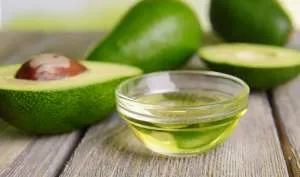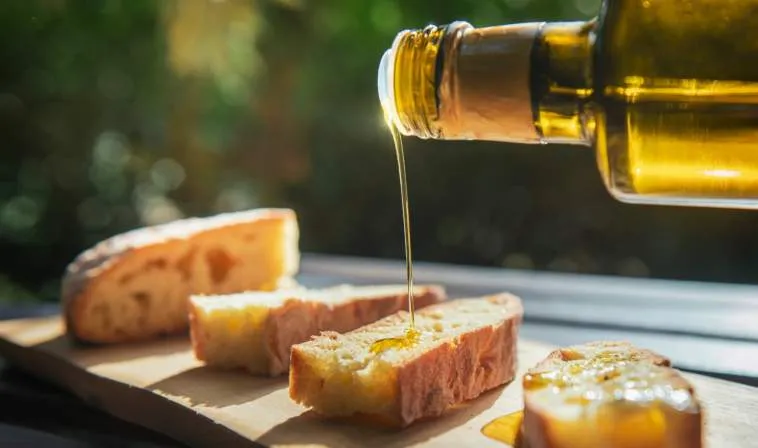(VegNews) There are a lot of things that cooking with oil can do that just can’t be replicated by water or broth. Caramelized onions, golden brown panko-crusted tofu, and elevated flavors—all of these are made possible by oil. When used in moderation, oil can be a healthy part of any diet. But, not all oils are the same. So, which oils are the healthiest for vegan cooking?
Is oil ever healthy?
The long and short of it is: yes, oil can be healthy. Fat is a macronutrient, a nutrient that the body needs large amounts of for energy and to help maintain its systems. Oils can help the body absorb fat-soluble nutrients, including vitamins A, D, E, and K. They also provide essential fatty acids that the body cannot make on its own, explains Jenna Volpe, RDN, LD, CLT. So, that fat needs to come from food sources.
However, the healthfulness of an oil is not so black-and-white. “Healthy oils tend to be those which are unsaturated and minimally processed, because they provide natural dietary sources of omega-3 fatty acids and monounsaturated fatty acids as well as vitamins and antioxidants,” says Volpe.
Saturated fats (found in high-fat meats, processed meats, high-fat dairy products, and certain oils, like palm and coconut) should be limited to less than 10 percent of your daily calories, according to the 2020-2025 Dietary Guidelines for Americans. Trans fats, found in baked and fried foods made with vegetable oil as well as some packaged snacks, should be avoided. Both of these can raise your low-density lipoprotein (LDL) “bad” cholesterol levels.
“Contrary to popular opinion, studies are uncovering that not all unsaturated vegetable oils are healthy,” says Volpe. “Diets too high in omega-6 fatty acids from food sources like sunflower oil, safflower oil, corn oil, vegetable oil, and canola oil seem to increase the risk of chronic health conditions such as heart disease and type 2 diabetes, according to a study from the Journal of the Indian Medical Association.”

An oil’s smoke point and why it matters
Basically, cooking is all about heating things up. It combines food, a heat source (a stovetop, oven, grill, air-fryer), and a heat transfer medium (water, oil, broth, pans, cast-iron-skillets, baking sheets). For example, when you pan-fry mushrooms tossed in corn or potato starch, the heat moves from the hot to the cold, from the heat source to the medium to the food. And Ibam—you have crispy mushrooms.
While you can cook using water and broth, they can generally only be used up to their boiling points. Oils, meanwhile, can withstand higher temperatures, which leads to the much-coveted browning of food, known as the Maillard effect.
Every oil has what’s known as a smoke point, the minimum temperature at which the oil switches from shimmering to smoking, resulting in burnt, bitter food.
“From a health standpoint, this can break down the oil, destroying its natural nutrients, or causing free radicals to develop, contributing to inflammation,” explains Veronica Rouse, MAN, RD, CDE.
Raw, unrefined, and cold-pressed oils have lower smoke points and are suited to low-and-slow cooking and finishing whereas refined oils are the ones that can take the heat.
The healthiest cooking oils for vegan diets
While “healthy” is a relative term, there are certain oils that are better than others.
“These are all either monounsaturated or omega-3 and are anti-inflammatory and protective of heart and cardiovascular health,” explains Dana Ellis Hunnes PhD, MPH, RD. “But it’s best to limit fat to no more than 25 to 30 percent of calories, like a Mediterranean diet. And it’s always better to get them from the actual food than from highly-processed foods.

1 Avocado oil
Avocado oil is obtained from the pulp of the fruit using mechanical extraction and there are two types: refined and unrefined, or cold-pressed. Refined avocado oil has a very high smoke point, making it suitable for all kinds of cooking. It is very neutral in flavor, so it’s good for a wide range of culinary uses in instances where you don’t want to taste the oil.
“Avocado oil has a fatty acid composition that is very similar to olive oil’s fatty acid composition,” explains Rouse. “The majority of avocado oil is made up of heart-healthy monounsaturated fatty acids and is low in saturated fats.”
Smoke point: 480 degrees
Good for: Sauteing, roasting, baking, stir-frying, shallow- and deep-frying






